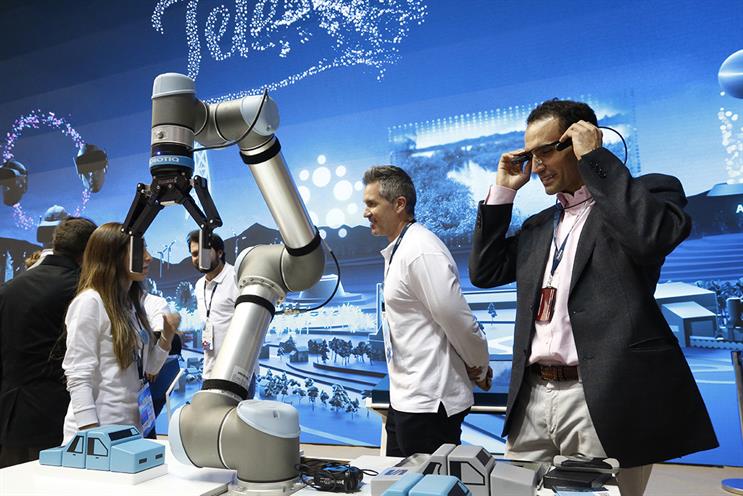Only time will tell which of the new smartphones will win over consumers, however, here’s some of the key trends from the show that marketers need to know to ensure they get the most out of their mobile strategy in 2018.
Engaging a visual and social generation with Augmented Reality
As an industry, we’ve spoken a great deal about adoption of Augmented Reality and a lot of brands are dipping their toe into how they best use the technology in creative campaigns. Samsung’s launch of its new flagship smartphones, the S9 and the S9+ debuted a form of AR to compete with Apple’s iPhone X, further highlighting demand for AR, putting more onus on brands to find ways to integrate the technology into their marketing plan.
The feature is called AR Emoji and it allows people to create a 3D picture of themselves and customise it to make realistic emojis of their own expressions. Samsung’s conference highlighted the importance of catering for a ‘visual and social generation’, the key to success being to build more engaging experiences, bespoke to the individual.
This is an important point. Marketers understand the value of making experiences relevant and engaging. However there needs to be more emphasis on interactive experiences, given increasing screen fatigue and the need for bespoke connections.
AR is fast becoming a part of daily life. Marketers that want to create an immersive experience for their consumers should explore how they can integrate this technology into their next campaign.
Smarter experiences with AI
Artificial intelligence is going to be a fundamental element of all devices and services in the future. It’s hard to ignore that already, AI is evolving and quickly becoming ingrained in various aspects of our lives. From digital assistants to image recognition software, it’s no real surprise that it’s a key trend from MWC 2018.
Nokia and HMD’s Nokia 7+’s facial recognition feature to unlock phones and LG’s Vision AI to help scan QR codes and perform image searches are just some of the AI announcements that have come out of the show so far. Bixby 2.0, an updated version of Samsung's AI assistant, also announced that it will recognise each individual speaker when spoken to by multiple people.
What all of these announcements demonstrate is not merely a need for ease but demand for intuitive and customised experiences. This demand goes beyond the product experience itself but should be front and centre of a brands’ broader marketing strategy too.
A big part of the opportunity for marketers is how AI will help realise individual experiences at scale.
There is more scope than ever before to create bespoke experiences for the consumer and learn their preference for a truly meaningful experience. However, any campaign needs to be approached in the right way and brands must ensure they understand their customers and their emotional connections before engaging with them, whatever the technology.
5G equals better connections and better experiences
The upgrade to 5G mobile networks has been the talk of MWC for years – but 2018 is looking as if plans and deals will come to fruition.
To mobile fans and brands delight, Huawei unveiled its first chip to enable mobile devices to access 5G internet speeds, as well as revealing plans to launch a 5G smartphone later this year. 5G refers to the next generation of mobile internet and claims speeds of 2.3 gigabits per second – significantly faster than speeds reached on 4G networks.
This development means consumer ad experiences can be even slicker, whether it is watching video content or browsing and purchasing on mobile, there is huge potential for marketers to create experiences that are just as good on-the-go as they are on WiFi.
Having access to faster internet speeds should be music to marketers’ ears, however, it does mean that marketers will be under further scrutiny to deliver seamless mobile experiences.
Tom Jackson is head of mobile UK at Oath


